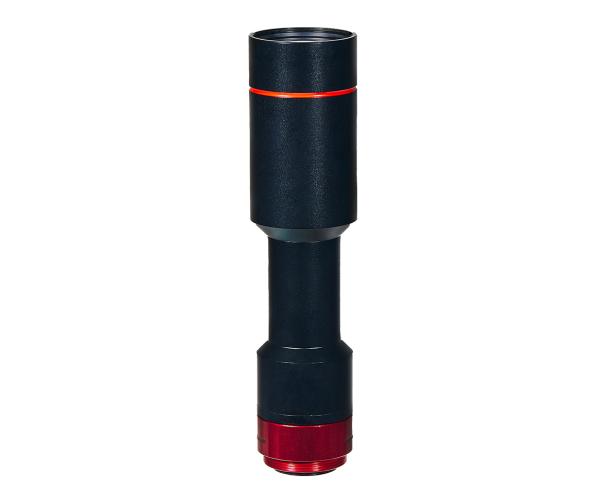- Home
- News
- What Are The Advantages Of Bi-telecentric lenses? The Difference Between Bi-telecentric Lens And Telecentric Lens
What Are The Advantages Of Bi-telecentric lenses? The Difference Between Bi-telecentric Lens And Telecentric Lens
A bi-telecentric lens is a lens made of two optical materials with different refractive index and dispersion properties. Its main purpose is to reduce or eliminate aberrations, especially chromatic aberrations, by combining different optical materials, thereby improving the imaging quality of the lens.
1、What are the advantages of bi-telecentric lenses?
Bi-telecentric lenses have many outstanding advantages, but they are also more difficult to operate and require more skills to use. Let’s look at the advantages of bi-telecentric lenses in detail:
1) Create special visual effects
Bi-telecentric lenses can create visual effects that cannot be achieved with conventional lenses, such as extremely adjusting the depth of field and creating the so-called “miniature model” effect.
2) Control the perspective of an image
The bi-telecentric lens can control the perspective of the image, correct the distortion of the building’s edges, and keep the projected lines straight without bending.
3) Perform focus control
Bi-telecentric lenses allow independent adjustment of focus and plane depth, which is not possible with conventional fixed lenses.
4) Excellent image quality
Due to their design, bi-telecentric lenses tend to have excellent optical performance and image quality.
5) Operational flexibility
Although bi-telecentric lenses require manual operation and control, they offer a degree of flexibility that allows the photographer to control the image according to specific needs.
The bi-telecentric lens
6) Innovate different effects
By adjusting the tilt and offset of the lens, photographers can create a variety of different effects with bi-telecentric lenses.
2、The difference between bi-telecentric lens and telecentric lens
The main difference between a bi-telecentric lens and a telecentric lens is the ability to adjust the angle of the lens and move the lens:
1) Bi-telecentric lens
Bi-telecentric lenses generally refer to telecentric lenses that have two lenses that can be adjusted separately. They can move up and down (offset) and left and right (sway), and can also change the tilt angle.
The design of a bi-telecentric lens gives photographers greater control and creative freedom, but at the same time it is more difficult to operate, requiring higher technology and exquisite techniques.
Overall, bi-telecentric lenses offer greater freedom of control and create images that are more creative and have lasting appeal, but they also come with a higher price and technical requirements that are more difficult to master.
2) Telecentric lenses
Telecentric lenses allow photographers to adjust the angle of the lens so that the lens and sensor are no longer parallel, allowing the photographer to control the depth of focus and create more dynamic and creative effects.
On the other hand, the lens of a telecentric lens can also be moved or “offset,” changing the composition without changing the camera angle, which is beneficial for controlling and correcting perspective.
Final Thoughts:
If you are interested in purchasing various types of lenses for surveillance, scanning, drones, smart home, or any other use, we have what you need. Contact us today to learn more about our lenses and other accessories.
